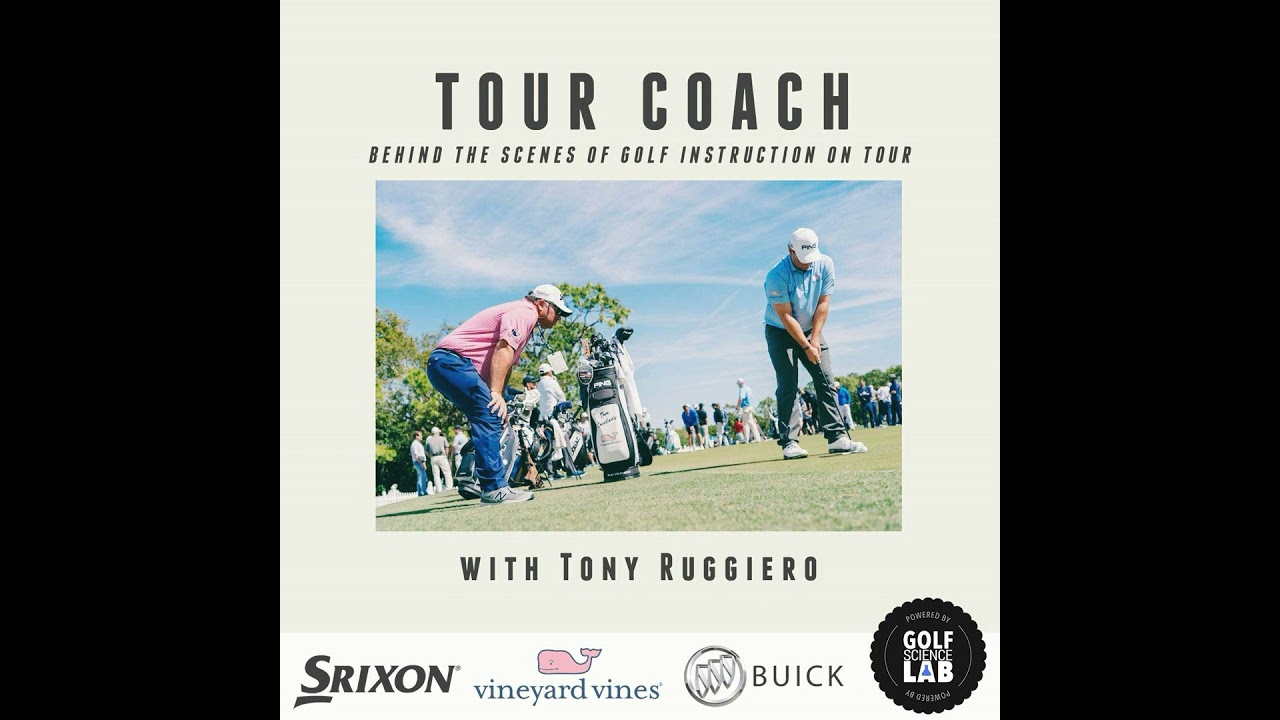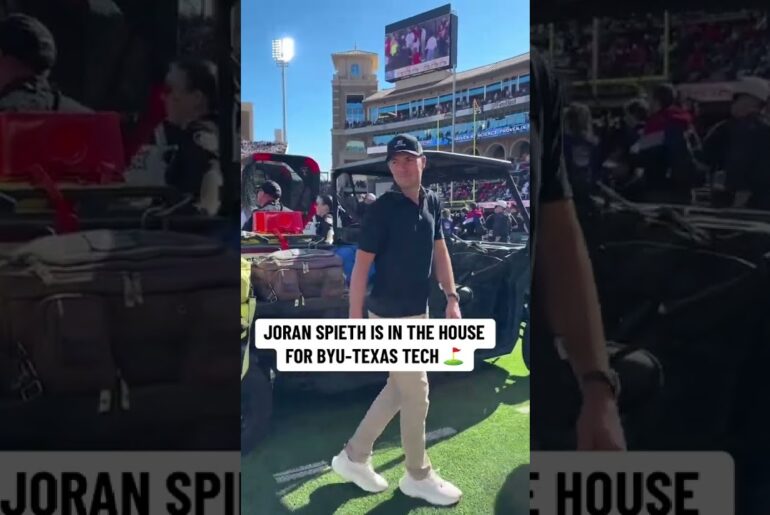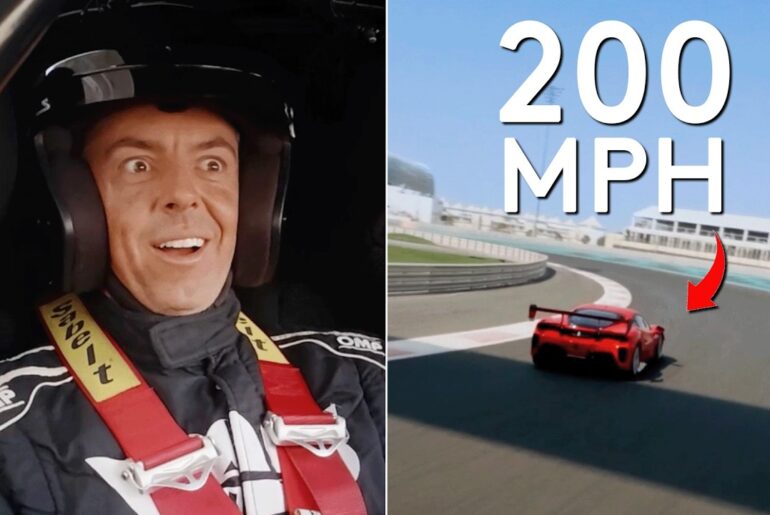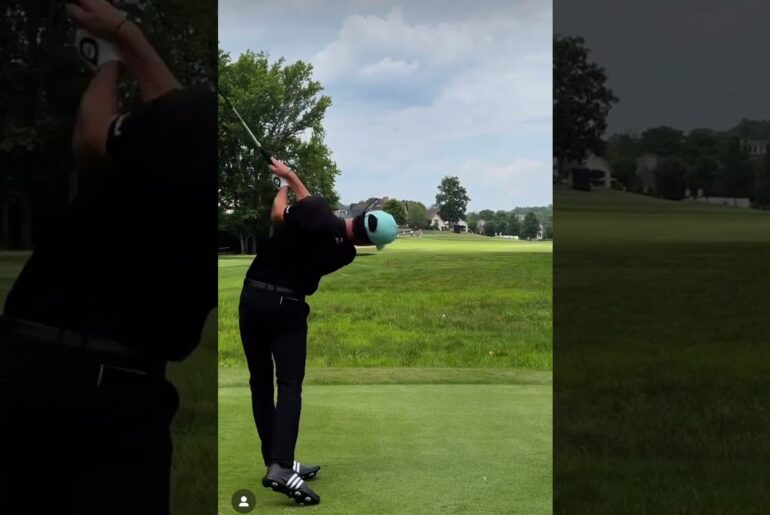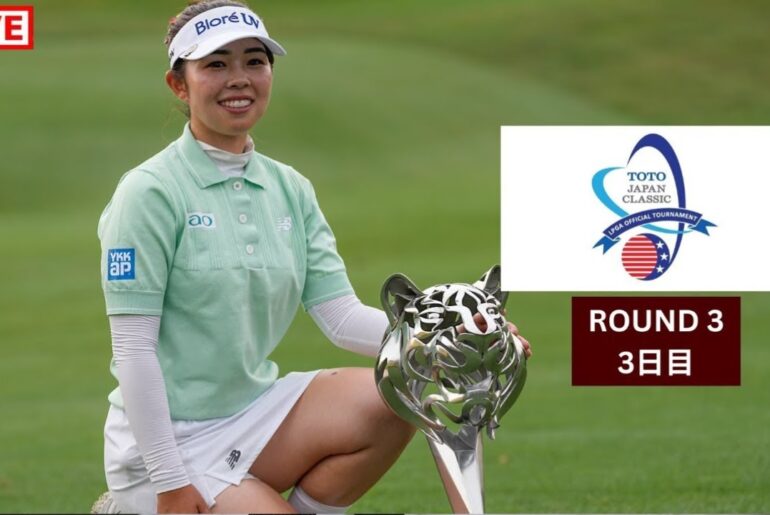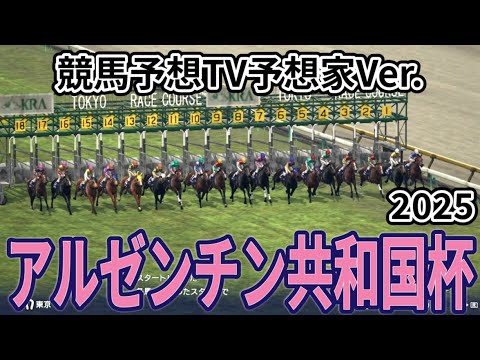Tony has Tour Player, Akshay Bhatia, on the show this week. Tony shares what really stood out to him about Akshay. They talk about his journey and choices with turning Pro at 17 years old. The uncharted challenges he struggled with and how he’s worked through them the past two years. He talks about the amazing coaches that have helped on the journey, and what he’s learned from playing with some of the greatest in the game: Phil Mickelson, Jon Rahm, Bill Haas, Bryson DeChambeau and many more.
Learn more about your ad choices. Visit megaphone.fm/adchoices (https://megaphone.fm/adchoices)
[Music] Hi, this is Tony Rogerro. Thanks for listening to the tour coach. These are the players, coaches, experts, stories, and insights from my work on the PGA tour at my retreats or my downtown teaching center in Mobile, Alabama. My goal is to shed light and share insights from the people who I’ve gotten to know and meet working on the PGA Tour and teaching through my career. And I hope this helps all of us play, coach, and teach better golf. If you like what you hear, please give us a good review and take a look at our new Deceer on Instagram where I’ve taken some time to share videos and help from my teachings, travels, and journeys. [Music] All right, so joining me here on the tour coach, Akay Batia. A what are you? You’re 19 now, right? Yep. Getting old. I know. Almost 20. It’s scary. I mean, golly. I mean, I’m 50. I’m circling the drain compared to the second game. Uh, you know, it’s been fun just getting to know you more than anything, even away from golf. And I I said this the other day, and I sincerely mean it. Like, I just think your outlook and your perspective on starting this journey to be a professional golfer and a PGA Tour player and a guy that wins majors and all that stuff at such an early age, though, is refreshing. Lots I mean, there’s been a lot of people try it. Not a lot of people. you’ve had more success, I think, than almost anybody else that started this young where you just went straight out. Talk a little bit about your perspective and what made you decide to, you know, forego in college. Let’s talk a little bit about that and and a little bit about the perspective you’ve gained and and you know, and about learning and the process that it’s been the first two years. Yeah. Yeah. I mean it’s been a lot of learning which has been awesome and I feel like as many great athletes say or you know many good teachers say is failure is the key to success and that’s what I’ve learned a lot is I’ve failed a lot uh on this journey obviously not going to college is a very different round only a handful of players do it and you know to start having success you know only my second year as a professional golfer is awesome and to compete against the best players in the is where I feel like I’m going to grow the most in this game and as a person because golf is such a more gentleman, you know, mature game and I’ve I miss Kurt a lot and you know, I know you’ve talked about how I I seem more mature than what my age says and you know, Dr. Dre always says my outlook’s a lot better than, you know, a lot of kids in college or your outlook’s better than a lot of 40 year olds I teach. Yeah. It’s been awesome and you know I’m excited to keep on going and just you know stick to the process like everyone says and you know my time will come eventually. It’s just being patient as you know. Well you know everybody talks about that staying committed to the process. It’s hard as hell to do when it’s you you know and things aren’t going great all the time but I want to go back to like what I a good friend of mine you haven’t met him. I’m you’ll introduce to him sometime he knows Greg but Wayne Flint’s a great teacher up in Birmingham and he used to always tell me we when we talk about college play like you go into college you go to college to gain the skills to be able to do whatever you need to do to make a living right I mean that’s basically what you do and so to me it made sense for you because really you already possessed the majority of the skills that it was going to take to play at that level and the only way you were going to refine those in my opinion and get better was to play against the best players in the world, you know. Take me through is that is that is that kind of part of the reason you for, you know, not getting fun into it because this isn’t about whether you should go to college or not, but you know, Yeah. I uh I just thought for me, you know, at at a young age, my goal is to be the best player in the world, play on the PJ tour. Obviously, I looked up to Tiger and kind of like some older players, Fred Couples, Nick Price, like a bunch of those guys who were just so you could tell they loved the game and it was all about feel for them. And so for me, I didn’t I wanted to kind of handle my own schedule and not, you know, have to go do workouts at this time and then go do class and then go practice with the team. Obviously, plenty of players have become successful. Majority of players are successful because of college, but for me it’s so much harder that it’s keeps me more interested I think throughout what works for me and obviously having a lot of really good people around me. Obviously Dr. Greg who’s worked with you know major champions and people gone the bottom of the bottom and brought him back up. Obviously Colby who works with all the best. Yeah. you know, b having those people around you. It’s going to be hard unless you get into your own way not to become a really good golfer. And I’ve enjoyed the process and, you know, I just got to keep figuring out, you know, how to become better every day. So, you mentioned that, you know, you have to fail. I think obviously you’ve had some not good times, but I think you’ve also had some really impressive starts and some really impressive play and uh you know I mean you’ve played in the US Open. I mean you’ve done some impressive things. What have you learned though? Like what have you learned about you? I’m always curious like what have you learned about your game? Like is there a part of your game where you like once you got out there and you played against the best players in the world, you’re like, “Hell, I I need to do better at this or I this is where I got to get better and sharper to compete against these guys.” Is there a part of your game that you feel like you’ve said, “Okay, I need to focus on a little better.” Yeah. Um, a lot of it’s mentality for me. You know, I feel like my game’s always been good. And this is something I’ve never really shared with anyone other than, you know, my coaches or my family or whoever’s been around me, my caddy. But right before I turned pro, honestly like 5 months before I guess I started realizing I was about to turn pro. So like the week before I qualified for a cornfair event at like I think I was 17 years old or something and I made the cut and then the next week I’m defending a tournament, the junior invitational in the first round I shoot 80 right after making uh the cut at the corner event which is like oh my gosh. And then I never struggled with confidence in junior golf and amateur golf. And then I think as subconscious as it was, you know, I don’t think many people talk about just certain pressure you put on yourself because I never had that. So I my hands would shake when I puted like it just all of a sudden my hands would shake, hands would shake. And so right when I turned pro, that was like a big thing that I needed to overcome. And doing that on the biggest stage in golf was the hardest thing because you got fans and people watching you on TV and people watching all over the world. And I would ball strike my way on the PJ tour and my hands would shake and I couldn’t I could not deal with it. And I think this is great to talk about because I’m sure plenty of junior golfers who are trying to win for the first time, they deal with this but they don’t know how how to handle it. I think also, actually, Greg always says this to me. I think that when you’re that person having it, like you think you’re the only person that’s ever had it, you know what I mean? And there’s like a comfort there’s a comfort knowing that that’s doesn’t make you that there’s nothing wrong with you and that it doesn’t make you bad or like you’re not good, right? Like there’s a comfort knowing that that’s part of it, I think. Yeah. So, yeah. So, you know, my first year as a as a pro, I went to every single tournament with my hands shaking, which was like it it was one of the worst feelings in the world. And then, you know, COVID hit. CO hit. I got time off and that was when I started working with Dr. Greg and I was trying to figure out, you know, how do I overcome this? You know, cuz I was like, I hated it so bad, but that was why it was happening is cuz I was I was fighting it so much. and he talks so much about just let it happen and it happens to every single player but it’s just part of it and so the whole year I struggle with that then I finally kind of overcome it you know started working on different goals in putting I guess more intent more tournament situation feelings and the first week I started doing these drills I couldn’t do it and then as time overcame it or over as time went on it it started to be more comfortable and so I probably went way off topic here but no this is awesome mentality was a big thing for me and I started to become more and more comfortable in those situations obviously as I played on the biggest stage in the US Open and you know money qualifiers everything let’s circle back I thought one you didn’t get off topic I thought that was fascinating one I think it would help people but two like I’ve said I think you’re incredibly worldly and wise for your age and I’ve enjoyed just getting to know you. I I enjoy teaching and being around young people that want to be great and want to get good. I think it’s the coolest thing to watch. And uh how did you get into golf and take us through the You’ve been around a bunch of bigname great teachers, which I think is awesome. I love hearing those stories. Take us through where you started and how you got to where you are now. Yeah, I mean my sister played golf growing up. My dad played a little bit, but my sister was really good kind of growing up in California. And I watched her as, you know, time went on and my dad kind of made me wait a little longer than she did. She started really young and I kind of started playing and practicing when I was six. You know, didn’t do much with it. Just kind of I was terrible and whatever. I was just trying to figure it out. And then we moved to North Carolina. had a golf course five minutes from my house and then all of a sudden I just I guess I started loving it, you know, practicing every day and my favorite thing was like short game, you know, hitting flop shots, bunker shots. Like we didn’t have a great chipping dream, but I was so invested in trying to just hit a bunch of stupid shots as a kid that I think over time it really helped me. And that’s probably something I need to do more often because I just enjoy doing that. Right now I don’t chip and practice my shortcoming as much as I need to. But that’s kind of how I got into it. And then as far as coaching, you know, I worked with Cameron McCormick. He was my first lesson I’ve ever had. And he was big time. That’s a big time teacher to be your first. Yeah. And this this is when Jordan was in his prime. And he was just too he used too many big words for me. Even I probably still won’t understand him. Don’t worry, I don’t either. 10 or 11 years old. But that was cool to experience. And then, you know, I started working with George Gankis a little bit. How’d you find George? Yeah, my cousin used to golf. And he said, “Hey, let’s go see my coach.” I was in California to to do uh the farmers qualifier when I was like 13 or 14. And he’s like, “Yeah, let’s just go see my coach and you know, he’ll help you or whatever.” And this was when George was a big time famous now for back then. So that was, you know, George is one of my best friends and he’s so funny. He’s great person to be around and he’ll always have my back and he obviously knows what he’s doing with Wolf and some of his other tour players. But now I work with Chase Duncan who’s, you know, near near to me and then, you know, obviously take some pointers from you as whenever I get to see you and whenever we can hang out. But yeah, so it’s been, like I said, having a lot of great people around me and figuring stuff out from everyone is, you know, it’s amazing. You’ve mentioned a lot. You mentioned it, you know, when we were hanging out downtown in Mobile, like you mentioned figuring it out a lot, right? Which is a process. And and I think I said this the other day to you. I think one of the cooler things I’ve been able to do, and it just happened by happen stance, not like I planned it, but like I’d have these young guys and then I’d be lucky enough to teach or coach a great guy like a Lucas Glover who’ had a lot of success or a Bill Hos and and you bring these young guys around the older guys and not that 40’s old, but it’s certainly older and they’ve got experiences. I thought that was one of the cooler things that I was able to do, facilitate these young guys. you’ve had the opportunity to develop some relationships and friendships with some of the best players ever. Talk a little bit about some of the people you’ve had the chance to play with and the relationships and the things that you’ve learned really just because I think like you said like some of those older guys have so much to offer from insight into how to play the game and how to be a professional and stuff that you don’t learn and you wouldn’t learn that at college anyways. Yeah. Yeah. I mean, that’s why this this uh journey that I’ve been on has been amazing. You know, I spent a lot of time with Bill Mickelson, as everyone knows, one of the best players in the world. And I mean, shucks to learn from that guy at 17 years old until now. It’s pretty I mean, it’s like it almost seems like a dream. Um you know, I was fortunate to spend some time with him on a plane and every tournament I’m in, then he’s in. We play practice round for the most part. What have you learned from him playing practice rounds or in the plane? Like is it play and stuff? Is it about how to be a professional? Is it about life? It’s funny like he mentioned I asked him a lot of you know a good amount of questions more about short game or like why he hits this specific club or whatever. And he asked just as many questions as I do which is cool. Um, a lot of his interviews he talks about how he likes learning from the young guys and about speed and whatever. And obviously he’s trying to chase the distance because he’s a little Yeah. So, you know, there’s small things here and there. We more so play just play games and I may ask him a thing about, you know, why he does this with his equipment, but man, I’ve gotten to play with so many great players. I play with John Rom this year, Bryson. And I play with Bill to who awesome to play with cuz guys won many tournaments and he’s a down to earth guy. And I think Bill might be one of the nicest people you could ever play golf with. Yeah. He doesn’t really have a doesn’t really have a bad bone in his body. Right. And and he comes from his dad was one of the great all-time players, right? And you know the time I got to spend around Bill and Jay, it was kind of like when you talked about like when I was growing up, Jay was like Bill would be to you, you know, and so like the times to go like I played I mean I played 18 holes with Bill and Jay and I was like and I was like it was so cool hearing these stories and stuff, you know. Yeah. Stories are the best part about old players. It’s some of the best stories and the things you hear that they do to each other or that they remember. I think they’re cool. Yeah, for sure. They’re sick. I don’t know. You just ask questions that you never get to ask, you know, sitting in a sitting in a classroom, you know. Yeah. Yeah. Yeah. Few things I’ve learned. But like I said, I kind of keep it to myself and I’ll watch more than ask. And I said this before and I told somebody this the other day that one of the things that impressed me about you was one time, I don’t know, you were struggling with a driver or something. So anyways, you came out. I was at Frederica at the time and you came out and I don’t know, Colobby I think was there. Anyways, we watched you hit drivers and I and I used the rope that I like to use that I took from my good friend Mark Wood and and uh laid it out there the target line and you know your feet were you like to play a cut your left-handed your feet 50 yards right at your target, right? And I put the rope down to help you see where the target line was. out of your square and you hit it better and I Anyways, but like lots of people you do that for and then you’ll see them down the road and they’re they’ve abandoned it, right? I mean, it’s human nature and I remember seeing you and it might have been Pebble, I don’t know, it was somewhere. Anyways, one of those sites that we were at and I remember seeing you on the range and you had the rope out and I remember thinking like, damn, like the kid listened like and that’s one thing I’ve always been impressed with you is the fact that you you really do listen. Not everybody your age, not everybody period really listens, right? And I and I was so impressed by that that like you actually listened to that and you applied it and you’re like, “Oh, okay. I took something good away from the time that we spent together, you know?” Yeah. I mean, the week the week we spent there, you know, I went over to Mexico the week or two after and Ied into my coba. So, obviously it worked. But I think the the coolest thing is like you’ve worked with a lot of great golfers and you know you’ve kind of figured out your formula and you know George has figured out his formula and Chase has figured out his formula. So like getting all that information and bits and pieces of what works and what doesn’t never hurts. And so you know bits and pieces from you while maintaining what I want to do and working with Chase. It’s, you know, it’s perfect. And Chase and I do a lot of more encore stuff and techniques here and there and with you doing more fundamentals with me has really helped because I don’t ever pay attention too much to that. I just, you know, hit balls and go play. And that’s a big thing in golf is the small things as you know. Well, and and I and I not to sound old and preachy, right? But my my young players know this like I really believe and I and I’ve said this to you before. I think that one of the things that will be very important for you cuz I think you’re going to be one of the great players. I think you have the potential to do it. And I think your mindset’s phenomenal is I think the difference a lot of the great players and then folks that are talented but don’t do what they want is the attention to detail. And I think the best players in the world pay so much attention to detail and they take care of the things that they can take care of and they can control. And I think that’s like but that’s just like I’m that’s not my personality type either. Like I’m terrible at it, right? But like I know that to be great or to do what you’re trying to do, you have to do it. And I I have to force myself. I think a little bit the way your personality type is, not reading anything new to it, but like you have to kind of help force yourself to pay more attention to detail to get where you’re trying to go. Yeah, definitely. you know, like we’ve talked about and what I’ve learned, you know, playing the last few years is it’s just like crazy to me, but you know, figuring out where like what side of the I need to hit on targets or whatever, dumb as that sounds, that’s a huge part in preparation. Yeah. And so, like you said, small details are a huge influence for me, and I’m sure a lot of players will learn that as time goes on. Yeah. Yeah. It’s it’s critical in this game. The more I think you do the small things really well, the better the outcomes will be for many tournaments, whether it’s more consistency or, you know, knowing that I can hit this certain shot with this setup. You know, if you do that multiple times, you know, it kind of comes automatic. Yeah. Yeah. That’s why pay attention to the details so they’re in place when you really need them, you know. Last couple questions. So, like you talked about preparation. How much is preparation different as you gone up from playing like, you know, junior golf to to, you know, you know, big amateur golf to playing, you know, to cornfair to playing PGA Tour stuff? What’s the difference in preparation? Have you learned a lot how to prepare better? Yeah, I think in junior golf I I mean, not to be cocky, but I didn’t much in junior golf. I I knew I was going to either be in contention or win the golf tournament, so there wasn’t too much going into it. I think, you know, putting was a big thing in junior golf for me. Like, I love to just practice putting uh and I still do. And I didn’t really care about how my golf swing was. And I think as time has gone on, you know, like I said, figuring out what side of the range I want to hit on, I hit the same amount of golf balls every day, you know, Monday, Monday to Sunday. And then I think once I do have, you know, secured status, it’ll be a little easier for me. I need, for me, I feel like I need to know every single part of the golf course in order to feel like super prepared. And sometimes that’s really exhausting, you know, playing Sunday, 18 holes Tuesday, and then sometimes I’ll go out, you know, after playing 18 and go hit some T- shots that I was uncomfortable with. So, it was, you know, it worked some weeks and some some weeks it didn’t. But that’s just you just got to stick to the process and keep learning and figuring out what works. But I think being really detailed is really fun for me. uh in my immigration my caddy and I love to do you know figure out a I guess uh I don’t know how to explain it our yardage books are really detailed and we a program around the green you know how we write down things so we’re on the same page so that’s really fun for me when figuring out you know preparation weeks so last question and as we move towards wrapping it up here what do you have on your schedule coming up what are you preparing for now you know what are the next three four last six months look like for you? Yeah, final stage of Q school for corn ferry tour uh in November and then I’ll probably do a few Monday qualifiers right after that and get the uh the corn ferry tour started in January. So, we get to start the Bahamas which kind of amazing. So, not a bad not a bad place to kick your year off if you got to kick a year off somewhere. Yeah. But, um I’ve taken the last two to three weeks off which has been amazing. which much needed to because I was super drained after the US Open and it’s just nice to relax. And then I actually just got a puppy. That’s No way. What did you name the puppy? We named him to uh her Tori after Tory Pines where I played my first major. Awesome. So, it’s fun to take care of her and, you know, have a have a pet for once. But yeah, just start practicing, try and gain some weight. Col’s been on my butt for that few days. You listen. Hey, you listen to him, okay? He’s the best in the world at what he does and he’ll help you get where you want to go. Yeah, for sure. The interesting thing, though, is when’s the last time you took three weeks off and didn’t really play golf? It has to. I mean, since you were 15. Never done it. It’s hard, you know. I’m starting to like want to play again and practice. I still got, you know, some things that we’re going to do before I start practicing. So, good. It sounds like you’re becoming like a normal person with other things you’re liking to do and interests and taking a little time away from it. That’s good. Well, you got a bright future. It’s been really cool. Like I said, aside from the golf, I’ve just enjoyed the hell out of getting to know you. And you’re you’re fun. You’re a fun kid. And I don’t mean kid in a bad way. You just bunch younger than me. But you’ve been you’ve been a blast to be around. And uh like I said, wise beyond your years, and I know you got a bunch of great stuff going going to happen. and you know uh you know we’ll look forward to hanging out in the future. Oh yeah, for sure. Thanks for having me. Thanks for listening to this edition of the tour coach. I want to take a minute and thank Cordy Walker and Golf Science Lab as well as my sponsors Shrix Buick Bush Nell and Vineyard Vines for helping make all of this possible and helping me share my insights with you. If you like what you’ve heard, why don’t you check out more on the Deweepers channel on YouTube as well as the Deuceer on Instagram or go to dweepersgolf.com to find out more about my teaching, my travels, and where you can find out more about me. [Music]

